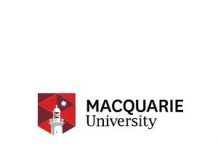Developed to cut out waste in car production, the Lean method is helping to transform processes in many universities. Already widely-used in professional services, Lean is now being applied to research management, as Northumbria University’s David Young explains.
Over the past 20-30 years, research administration and management has become an increasingly common feature in higher education institutions both in the UK and internationally.
Browsing through the departmental structures on most university websites you would now be surprised if you didn’t see a research office or research and knowledge exchange team alongside the usual suspects of student services, university library, academic registry, human resources and finance.
Although research support services are structured differently in different HEIs – some centralised, others devolved to colleges, schools or departments – most share similar characteristics: there’s usually support for costing research and consultancy bids, advice and guidance on research funding opportunities and policy, coordination of research assessment and expertise in business engagement and knowledge exchange.
Like any service in HE, many of these areas are complex, involving multiple internal and external stakeholders whose needs must be balanced against those of the institution. Processes and procedures typically evolve and mutate over time to respond to changes in structure and policy.
At Northumbria University our research and business services (RBS) is centralised, with specific roles providing support aligned to one of four faculties. For example, part of my role is to provide research bid development support to the Faculty of Engineering and Environment and I work closely with colleagues in other parts of RBS who provide support on costing and business engagement.
Research growth
The university has grown its research activity substantially in the last five years, more than doubling the volume of research submitted to REF2014 compared to RAE2008. This increased capacity has brought with it more demands on RBS to deliver high quality research and business support services, alongside ambitious targets for research income growth.
We are operating in a highly competitive environment, as many other UK universities are aiming to grow their income from external research funding and success rates are often challenging. This means we need to provide a flexible, responsive and targeted service which adds value for our customers: academic staff, funders and external clients.
At a recent away day our department decided it would be useful to work in multi-disciplinary / cross-department teams to identify a series of ‘grand challenges’, projects which were not part of our daily work, but which would allow us space to reflect and improve the service we offer as a department.
Our director of service encouraged us to take one afternoon per week to deliver this over this summer. Along with two colleagues – Emma Batey, a business and engagement manager, and Michelle Roxburgh, a post-award coordinator – I decided to look at how Lean principles and approaches might be able to make a difference to research and business support.
Despite having worked in research administration for nearly ten years, it was only relatively recently that I came across the concept of Lean in HE and how it might be used to improve the efficiency and effectiveness of the service we provide. There is a rich array of resources, links and support on lean in HE, notably those accessible through the LeanHEHub website. Searches on Efficiency Exchange also enabled our team to quickly get up to speed with the key concepts and how they might be applied to delivering a research and business support service.
Lean principles
The main principles of Lean are straightforward enough to understand: identify value for customers; map / analyse processes to eliminate wasted effort and improve or create ‘flow’; continuously evaluate and improve the service.
Our grand challenge project aims to apply these principles and the associated Lean tools and techniques to three processes within RBS in the first instance. If this pilot is successful we will recommend using this approach more widely across RBS.
Our project plan is divided into five phases:
- Planning/Training, June 2016: Literature review and approach external experts
- Requesting/Scoping, July / Aug 2016: Identifying key areas, customers and value, mapping processes in collaboration with stakeholders
- Redesign, Aug 2016: Developing new process maps using lean tools
- Implementation, Sept 2016: Implement revised processes in partnership with stakeholders
- Review/Feedback, Sept / Oct 2016: Review processes against metrics, seek feedback and plan ongoing sustainability of lean approach, disseminate results
We’re currently in the Requesting / Scoping stage, identifying which processes we are going to map and analyse and speaking to staff “on the ground” who are involved in delivering. At this stage, the idea is to focus on the following areas:
- Post-award contract set up.
- Managing funding with external companies.
- Transfer of grants into the university.
In most of the above cases, key stakeholders include: RBS (pre- and post-award), legal services, academic staff, funders, external partners and companies.
Our team will keep posting updates to the Efficiency Exchange blog as the project progresses and we welcome comments and suggestions from others either here, via email or Twitter.








